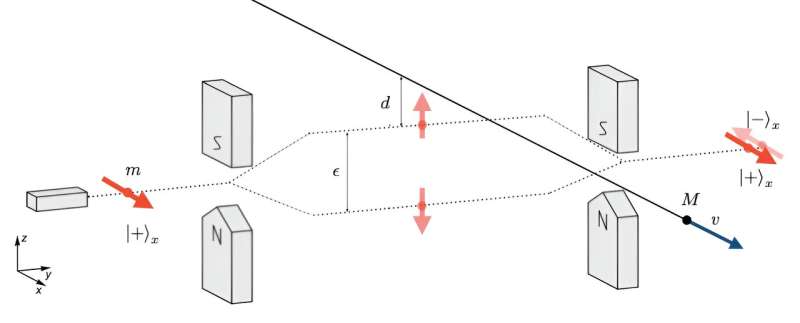Researchers at Aix-Marseille University and the Institute for Quantum Optics and Quantum Information have proposed a groundbreaking method to detect Planck-scale dark matter particles using quantum interference. This study builds upon previous theories suggesting that these ultra-tiny, yet massive, particles could be a significant component of the elusive dark matter that makes up the majority of the universe’s matter. The researchers’ innovative protocol could pave the way for the first-ever detection of these enigmatic particles, potentially shedding light on the quantum gravity effects at play in the cosmos.

Quantum Interference Reveals Planck-scale Dark Matter
The existence of dark matter has long been a mystery for scientists, as they have no information about what form it could take. Over the years, various hypothetical dark matter candidates were considered by physicists, those with masses around the scales equal to that of Planck mass (~ 1.22×10^19 GeV or ~ 2.18×10^-8 kg) being famously known for having numerous mysteries unresolved. These so-called particles, which might also hint at the missing theory of quantum gravity, have piqued the interest of researchers because they could make good candidates for dark matter.
A team of scientists, led by Carlo Rovelli, Marios Christodoulou and Alejandro Perez has devised a new experiment that will help us catch one of these hiding Planck scale dark matter particles. This technique exploits the rules of quantum physics known as quantum interference to amplify tiny gravitational signals until they can be detected.
Reading the writing: Gravitational Quantum Interference as a method to probe Planck-scale Dark Matter
The intuition underlying this novel protocol is that a test particle prepared in a superposition of quantum states would interact with the gravitational field of the dark matter particles as they pass by at different positions on Planck-scale distances. This would cause a quantum effect, and you could see it happening in the particle’s wave function.
To get around the problem of these Planck-scale dark matter particles having a very low occurrence, the team suggested that they could create a system in which many were held in a coherent collective quantum state, like within a Josephson junction. In such a case the motion of an electron being disturbed by the passage of a dark matter particle on either side of the junction will lead to a measurable current passing through the gap, merging thereby N macroscopic experiments into one observation.
Discovery Potential for Planck-scale Dark Matter Sensitivity Open Access(resources: pdf)
If the new technique pans out, that could be a big advancement in finding dark matter. The event, if real, would not only mark the elusive first direct detection in an experiment of Planck-scale particles but may also offer a direct view into Loop Quantum Gravity theory — which has anticipated these particles.
Moreover, detecting dark matter at the scale of Pl If real, these particles would fill in a lot of the gaps for dark matter believed to make up most the cosmos. Furthermore, their peculiar quantum mechanical properties could help us understand how quantum mechanics interacts with gravity – a struggle that physics has been trying to solve for decades.
As researchers work with experimental physicists to develop and experimentally verify their protocol, humanity may edge towards the day when we will understand Planck-scale dark matter. For this profound discovery moves the goalpost not only of what we know, but also of what we cannot know; in so doing, it positions humankind at the frontier of a province that is neither known nor unknown: It transforms our perceptions of the universe and its place in it.
